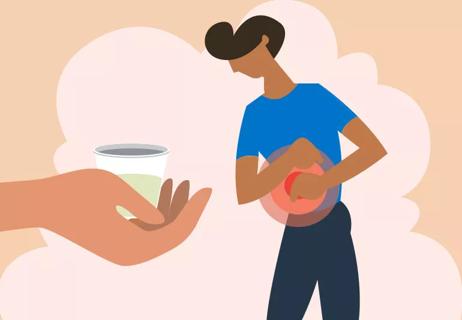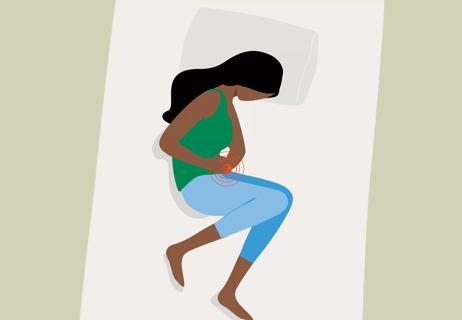Here’s the 411 on No. 2 — and three ways to keep your inner roadways traffic-free

Bloated bellies don’t lie. It’s been a few days since your last bowel movement, and things are starting to feel … well, backed up.
Advertisement
Cleveland Clinic is a non-profit academic medical center. Advertising on our site helps support our mission. We do not endorse non-Cleveland Clinic products or services. Policy
It’s normal to be constipated every once in a while, but when is constipation sounding the alarm for a bigger problem? Colorectal surgeon Massarat Zutshi, MD, gives us the 411 on No. 2.
A: Constipation happens when your bowel movements occur less often or cause more strain than usual. Dr. Zutshi says there are three kinds of constipation:
Normal transit and slow transit constipation are both considered motility disturbances. And to understand motility, look no further than the morning commute.
Motility is how well the roads — or in this case, the muscles in your gastrointestinal (GI) tract — are moving.
Advertisement
And just like there are many causes for snarled roadways, there are different reasons your inner streets are backing up, such as a lack of:
You have less control over these other constipation causes:
A: While the nursery school book “Everyone Poops” still rings true, how often they do so is another story.
“There’s no real normal. Men are different from women. Age changes things. Pregnancy changes things,” adds Dr. Zutshi. “As long as you have a bowel movement that occurs regularly — not too few in a week — and has a regular consistency, you’re fine.”
But what’s “not too few,” you ask? “Constipation is defined as less than three in a week.” Uh-oh. So, now what?
A: Dr. Zutshi explains: It depends if you’re regularly regular or not.
“People who have constipation frequently know what to do when it strikes. They’ll try home remedies during the two or three weeks they don’t have a bowel movement. And then if nothing works, they see a doctor,” says Dr. Zutshi.
But if you’re someone who doesn’t usually experience constipation, see a doctor sooner. Dr. Zutshi recommends making an appointment if constipation lasts longer than a week.
A: It can be, but most often is not.
“It would be an emergency if you hadn’t had a bowel movement for a prolonged time, and you’re also experiencing major bloating or severe abdominal pain,” notes Dr. Zutshi.
Slight symptoms will not take you to the emergency room. You should go to the emergency room if your symptoms are severe.
Other warning signs to watch for are:
A: Dr. Zutshi emphasizes the big three: Water first. Fiber next. Exercise third.
If you think you’re having issues with constipation, Dr. Zutshi advises you to be proactive.
“See a gastroenterologist to figure out if everything is OK. And if you haven’t had a colonoscopy and you’re over 50, it’s time to schedule one.”
Advertisement
Advertisement

Sign up for our Health Essentials emails for expert guidance on nutrition, fitness, sleep, skin care and more.
Learn more about our editorial process.
Advertisement

Drinking water, eating high-fiber foods and exercising are just a few of the ways to get back to your ‘regular’ self

It might be, but it’s more likely that your symptoms of constipation and back pain are caused by underlying conditions

From staying hydrated to staying on schedule, these tips can help you stay regular on-the-go

Developed in the 1800s, this remedy remains a viable solution today

Prunes earn the title of ‘nature’s remedy’ for bowel movement issues

Stool softeners are a type of laxative that softens your stool, making it easier to poop

A dietitian weighs in on social media’s popular constipation recommendation

Eat foods high in fiber, drink water and consider using a laxative

Even small moments of time outdoors can help reduce stress, boost mood and restore a sense of calm

A correct prescription helps your eyes see clearly — but as natural changes occur, you may need stronger or different eyeglasses

Both are medical emergencies, but they are very distinct events with different causes